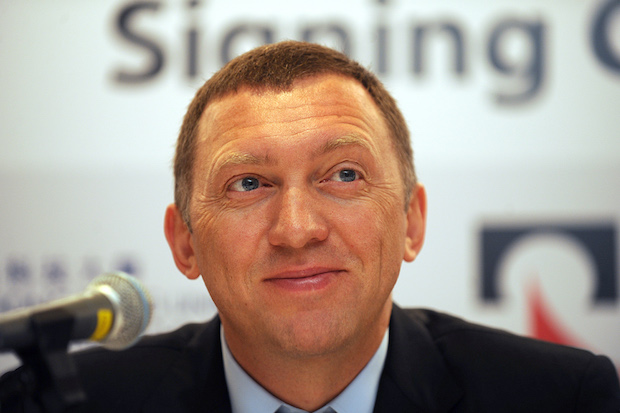A decade ago I commissioned an article about Vladimir Putin’s business cronies. Among other lines of enquiry, it sought to finger ‘a coterie of wealthy and politically influential industrialists, many believed to be former or current secret service officials’ who allegedly had shareholdings in Russian companies which, if we or anyone else had been able to prove that they were controlled by the president, might have evidenced a personal Putin fortune of tens of billions. Sensibly, The Spectator’s lawyer would not let me publish — but the US Treasury has now done its own version of the job by imposing sanctions on seven oligarchs and 17 senior Russian officials who are believed to form the innermost presidential clique.
The Who’s Who of Kremlin favourites has changed many times over the years, but it’s gratifying to note that one of those seven oligarchs also featured large in our unpublished exposé: he is Vladimir Bogdanov, a Putin chum since early St Petersburg days and president of Surgutneftegaz, the Siberia–headquartered oil company which keeps huge reserves of cash and whose owner-ship has long been shrouded in mystery. Then there’s Igor Rotenberg, son and heir to Putin’s boyhood judo partner Arkady Rotenberg — who I once congratulated here for winning multiple construction contracts, worth more than $7 billion, at the 2014 Sochi Winter Olympics.
And of course, most prominently, there’s our old sparring partner Oleg Deripaska, the prince of Russian aluminium. When he listed his master company Rusal in Hong Kong in 2010, I observed that it ‘set a new benchmark for just how risk-laden a stock can be and still gain access to public markets’ and that the only analytical tool with which to address such an impenetrable offering ‘must surely be a very long bargepole’. When he listed his new master company EN+ (by now the majority owner of Rusal) on the London Stock Exchange last November, I suggested that ‘the City shouldn’t be doing business with anyone so close to Putin’s Kremlin’, particularly when the £1 billion proceeds of the float were flowing back as debt repayments to Russian banks that were already subject to US and EU sanctions following Russian aggression against Ukraine. I gather MI6 made the same point, but to no avail.
Since the new US sanctions were announced, Rusal and EN+ shares have plunged and Deripaska’s personal worth is down by a couple of billion — while a legion of bankers and PR men who collected fat fees from him have presumably been shredding their files. What’s striking about this story is not that the US authorities are finally closing in on Putin’s circle, but that the entire oligarch class, whose concentration of unmerited economic power represents such a stain on capitalism and such a blight on their own homeland, should have been allowed to swagger abroad for so long. London — City and West End, as it were, in all their aspects — has a lot to answer for.







Comments